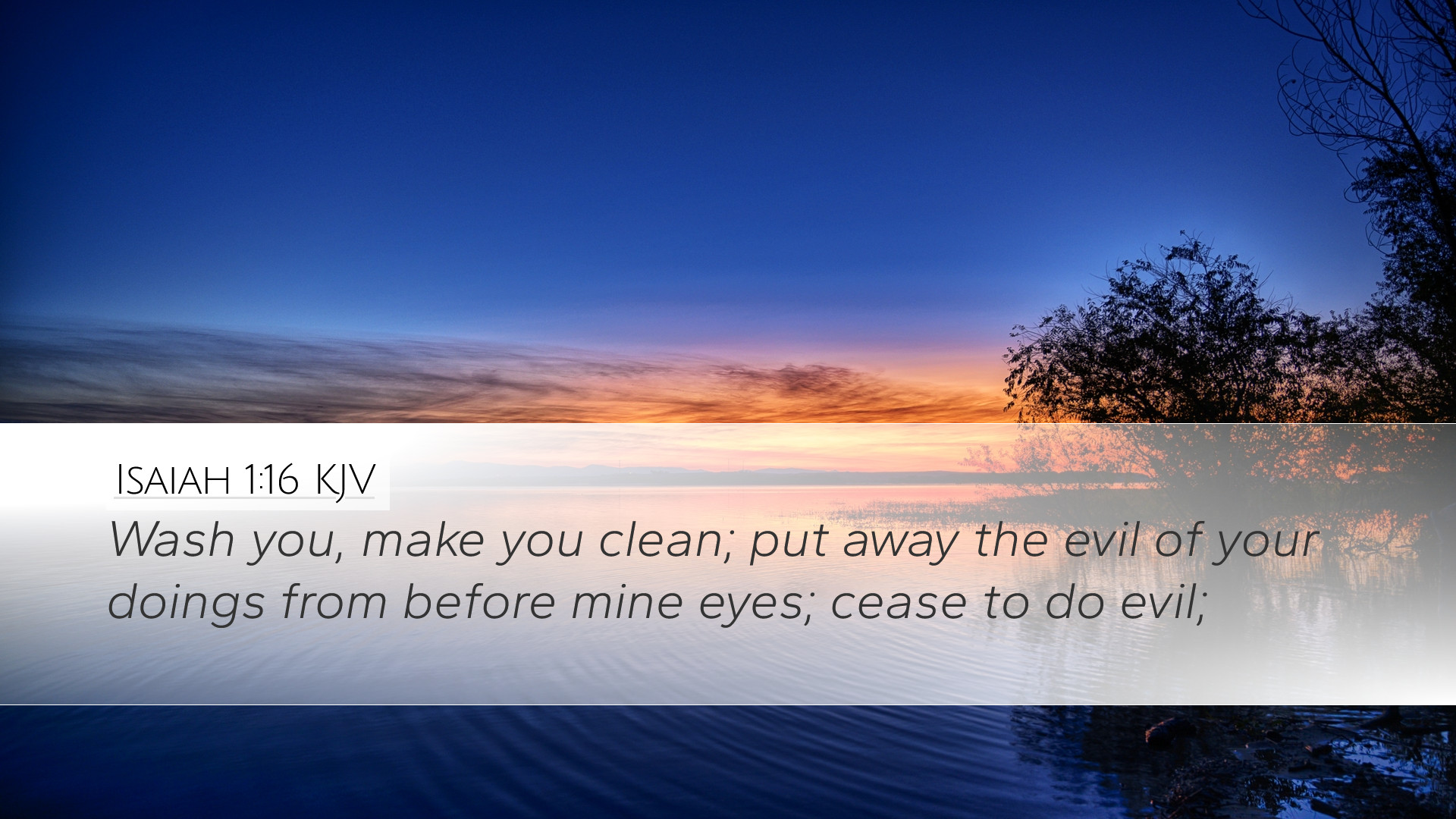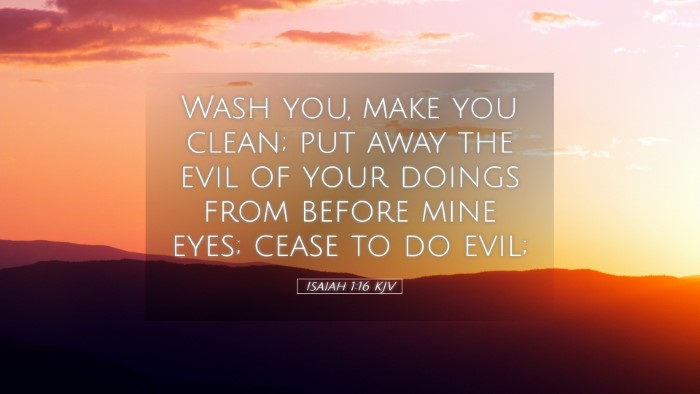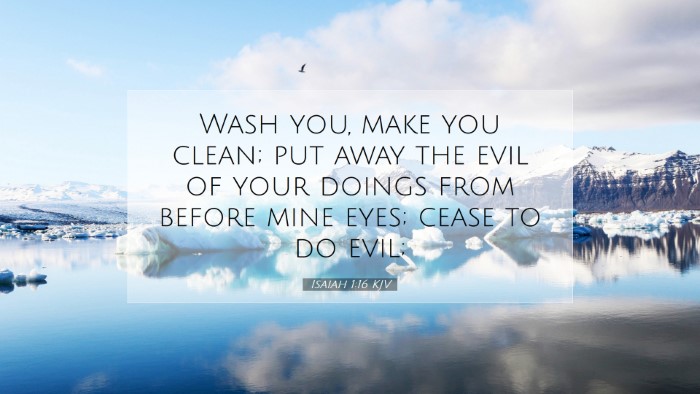Commentary on Isaiah 1:16
Verse: Isaiah 1:16
"Wash you, make you clean; put away the evil of your doings from before mine eyes; cease to do evil."
Introduction
This passage from Isaiah is a profound call to spiritual renewal and repentance. It emphasizes the necessity for purification and moral rectitude in the life of a believer. The invitation to "wash" and "make clean" signifies a deeper request for inner transformation.
Exegesis of the Verse
Isaiah 1:16 is a command from God, delivered through the prophet Isaiah, addressing the people of Judah. The verse points to several key themes that resonate with both the immediate audience and generations of believers after them.
1. Call to Purity
"Wash you, make you clean;"
Matthew Henry remarks that this washing signifies a removal of moral impurities. In a spiritual context, it is not merely about outward cleanliness but about an inner transformation. The metaphors of washing reflect God’s desire for His people to be free from sin and iniquity, much like the ceremonial cleansings found throughout scripture. Albert Barnes notes that this command to wash implies an active role of the sinner in seeking cleansing from sin. The cleansing is a cooperative process where the individual responds to God’s call.
2. The Nature of Sin
"Put away the evil of your doings from before mine eyes;"
This part of the verse addresses the need to renounce wrongdoing. Adam Clarke highlights that this directive carries significant weight; it implies a critical reflection on one's actions. The phrase "from before mine eyes" serves as a reminder of God’s omnipresence and His watchful gaze. Sin is not hidden from God, and the call to remove evil is a plea for transparency and honesty in our relationship with Him. The imagery invokes not just individual failings but collective societal sins that must be repented of.
3. Urgency to Cease Evil
"Cease to do evil."
Here, the prophet explicitly commands an end to wrongdoing. Henry comments that this cessation of evil is foundational to genuine repentance. The Hebrew term used indicates a stopping of harmful actions. This phrase emphasizes the necessity of active change; it is not merely about feeling sorry for past actions but requires a decisive shift in behavior. Clarke notes that this call is not just for individuals but encompasses the corporate sinfulness of the entire nation. God seeks a transformation that leads to ethical living reflective of His character.
Theological Implications
The implications of Isaiah 1:16 extend into practical theology, emphasizing God’s expectations of holiness among His people. Several important points arise from this verse for contemporary application:
- Divine Initiative: God’s command for cleansing demonstrates His initiating grace. Believers are called to respond to His overtures of grace, understanding that repentance is part of the faith journey.
- Holiness and Community: The “evil of your doings” signifies both individual and communal accountability. This verse challenges modern congregations to consider how corporate idolatry and systemic injustices require attention and renunciation.
- Active Repentance: The imperative to “cease to do evil” calls for action. Genuine faith is manifested through deeds, leading to a lifestyle that reflects the transformation received from God.
Application for Today
In reflecting on Isaiah 1:16, pastors and theologians are encouraged to emphasize the importance of repentance and moral clarity in their communities. The following applications can guide individual and collective responses:
- Preach the Need for Repentance: Like Isaiah, modern preachers must call out sin while offering hope for transformation through Christ.
- Encourage Personal Holiness: Leaders should model and promote personal holiness, understanding that the witness of a transformed life speaks powerfully to the outside world.
- Community Reflection: Engage church communities in self-examination, focusing on areas where they may be complicit in societal evil and calling for practical changes.
- Teach about God’s Grace: While discussing sin and cleansing, it is vital to always connect it back to God’s grace, which makes transformation possible.
Conclusion
Isaiah 1:16 serves as a timeless reminder of God’s call to purity and righteousness. It emphasizes the integral relationship between faith, action, and community responsibility. By responding to God’s invitation to "wash" and "make clean," believers engage in a lifelong journey of sanctification and reflection, aligning their lives more closely with the nature of Christ.


